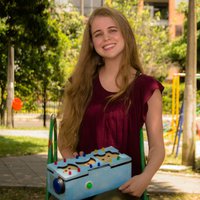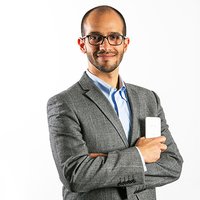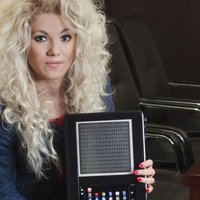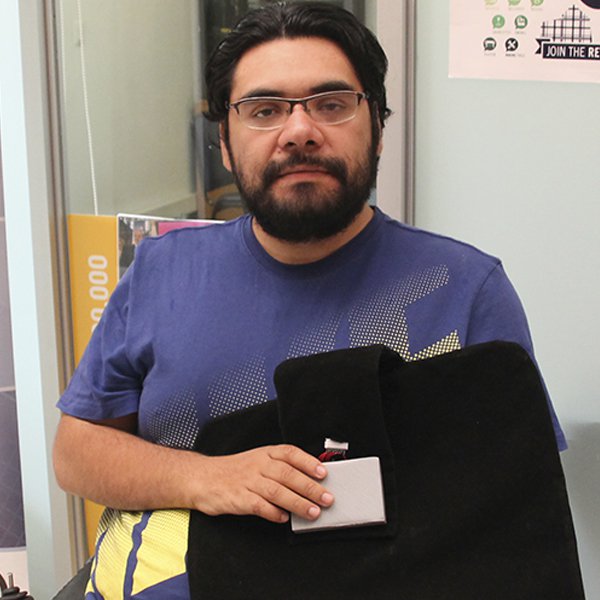The industrial engineer Pedro
Aguilera tested out his first prototype on his young nephew. He wanted to
confirm whether the sensors worked properly and pressure movements were
correctly analyzed...and he was not disappointed: all of the target data had
been captured and processed. And thus, was born Prev UPP, an app designed to
prevent pressure ulcers aimed at improving the quality of life for people
confined to a wheelchair. Thanks to his invention, this young Chilean has
earned a spot amongst MIT Technology Review, Spanish edition´s Innovators Under
35 Latin America 2017.
Prev Upp is comprised of a kind of cushion, which the user places underneath
them on the seat, sensors which are strategically placed on the user´s body,
and a battery. This combination is capable of detecting pressure differentials
and sends this data to the user´s smartphone. Upon detecting an alteration, the
app sends an alert. Prev Upp´s potential impact is highly noteworthy: over 65
million people worldwide are confined to a wheelchair, and preventing pressure
ulcers is one of the factors which define the quality of care at any hospital.
Wheelchair users are especially vulnerable to pressure ulcers, which affect the
patient´s skin, muscles and even bones. These sores can form in a question of
less than two hours.
At the end of March, Prev Upp launched a trial with 60 patients at the Workers´
Hospital in Santiago (Chile). Its creator explains: "We have been very
well received by the patients. They ask us when it will be available for
purchase." From this initial trial, the team will conduct a study to
define a probability model. Aguilera highlights that his objective is "to
be able to predict, with a minimal range of error, the probability [%] of a new
ulcer forming in a specific area of the user´s body based on the immobility of
each subject."
With regards to other products on the market, Prev Upp aims to differentiate
itself from the competition in two key areas: portability and the use of the
lightest possible, long-lasting battery. "We want an efficient product and
not just something that promises the moon and then fails to deliver," says
Aguilera, adding that he is already in contact with suppliers regarding the
development of future designs.
Cost savings will be a determining factor in the potential adoption of Prev
UPP. According to Aguilera´s estimates, a private hospital in Chile on average
spends approximately 70 million Chilean pesos (about 112,000 US dollars or
92,000 euros) per year treating patients´ pressure ulcers. "Prevention is
much cheaper. The hospital benefits, and their patients are covered by their
health insurance, so [our] system would save both parties a lot of money,"
Aguilera points out.
Aguilera uses a wheelchair himself, and he is clear about what drives him:
"I have seen the suffering that these ulcers cause. The physical and
mental condition [of these patients] is very complex. Many are bedridden, with
a high risk of forming further sores. Is it a [vicious] cycle; and that is
where my motivation resides: in creating something to help people in my
situation."
"What is really exceptional [about Aguilera´s product] is its low cost,
its potential to massively help many people with reduced mobility and the application´s
personalization potential," highlights the professor of telecommunications
at the European University of Madrid (Spain) and jury member for the Innovators
Under 35 Latin America 2017 awards, Víctor Padrón.




